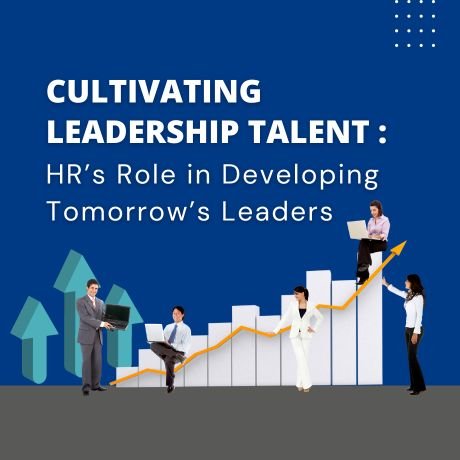
Cultivating Leadership Talent: HR's Role in Developing Tomorrow's Leaders
Introduction
- In today's fast-paced and dynamic business environment, the demand for effective leadership has never been greater.
- As organizations navigate complex challenges and embrace constant change, the role of leaders in shaping the future becomes increasingly vital.
- It's not enough to rely solely on the leadership of today; organizations must focus on developing leaders for tomorrow.
- In this transformative journey, Human Resources (HR) takes center stage, playing a pivotal role in nurturing and cultivating leadership talent.
1. The Symphony of Leadership Development
- Think of leadership development as a symphony – a harmonious blend of talents, skills, and wisdom that produces beautiful, inspiring melodies.
- HR professionals are the conductors of this symphony, orchestrating a process that creates leaders who are not just effective but transformative.
2. Recognizing Potential
- HR must have a discerning eye, spotting those individuals who possess the seeds of leadership within them.
- It's not about finding the finished product but identifying the raw material with the potential for greatness.
- Leadership potential can manifest in various ways.
- It might be the employee who takes the initiative during team projects, the one who radiates a natural charisma that inspires others, or the individual who consistently demonstrates a commitment to personal and professional growth.

4. Diversity and Inclusion
- True leadership thrives in a diverse ecosystem.
- HR should champion diversity and inclusion efforts, as diverse teams bring varied perspectives and ideas to the table, nurturing well-rounded leaders.
- Inclusion ensures that all voices are heard and valued, fostering a culture where leaders learn to appreciate and leverage differences.
- HR plays a central role in creating policies, initiatives, and training programs that promote diversity and inclusion, ensuring that leadership development is not limited to a homogenous group but encompasses a wide range of talents and backgrounds.

4. Diversity and Inclusion
- Constructive feedback is the mirror that reflects a leader's growth.
- HR should encourage a culture of feedback, where leaders receive honest assessments of their performance and are recognized for their achievements.
- Feedback should not be limited to annual performance reviews; it should be an ongoing dialogue.
- HR can facilitate 360-degree feedback mechanisms, where leaders receive input from peers, subordinates, and superiors, providing a comprehensive view of their strengths and areas for improvement.
- Regular feedback sessions create a culture of transparency and self-awareness, empowering leaders to continuously refine their skills.
"HR leaders are the architects of an organization's culture,
shaping its values, beliefs, and behaviors."
Post Views: 305




